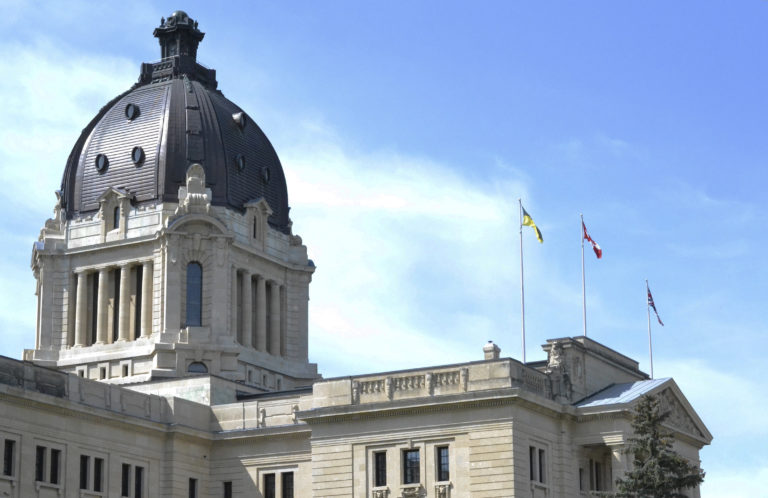
The provincial government reduced the cap on public gatherings to 10 people on Wednesday and placed additional restrictions on non-essential businesses in an attempt to slow down the spread of COVID-19.
The province also announced plans to recruit and rehire recently retired health professionals like registered nurses, licensed practical care nurses, and laboratory and diagnostic technicians to help relieve the stress on the acute care system.
Those restrictions mean “non-allowable” businesses cannot provide public-facing services during the Coronavirus pandemic. They can, however, continue to provide pick-up, delivery and online retail services.
“I know today that we are asking a lot of everyone in Saskatchewan,” Premier Scott Moe said during a media briefing Wednesday afternoon. “Whether you are working in one of the businesses or services that is staying open, or you work in one that is now closed and you are at home, each and every one of you need to know that you are doing your part. Every one of you is part of a massive civil defence effort to protect our families and to protect our province.”
The list of non-allowable businesses is almost exclusively retail. It includes clothing stores, shoe stores, flower shops, sporting goods and adventure stores, vaping supply shops, boat, ATV and snowmobile retailers, pawn shops, flower shops, travel agencies, and music, electronic and entertainment stores.
Allowable businesses include things like construction firms, housekeeping services, gas stations, grocery stores, funeral homes, pharmacies and public transportation.
The new regulations will come into force on March 26.
“We are asking a lot, but it is necessary, and it will reduce the risk,” Moe said.
The new 10-person cap on public gatherings also comes into effect on March 26. Dr. Saqib Shahab, Saskatchewan’s chief medical health officer, noted that the limit varies from province to province, but said “there’s no magic number” that will completely reduce the risk.
“It’s (about) how you interact,” he explained. “If you are sitting in a room with five people having a conversation two meters apart, or outside, that is fine. If you are playing a board game and you are part of a household and you’re living together anyway, that is fine, but you shouldn’t do things as a group where you’re passing things back and forth.”
This is the second time in less than a week the provincial government has reduced the cap on public gatherings. Previously, only 50 people could gather together in one place at a time. That was reduced to 25 on Shahab’s recommendation on March 20.
The provinces of British Columbia and Manitoba also have public gatherings capped at 50 people. So has the province of Manitoba, although the government there is discussing lowering the limit to 25.
Province discussing options for preventing COVID-19 outbreak in Saskatchewan jails
Premier Scott Moe says the government is looking at a number of methods to keep COVID-19 from spreading through the province’s correctional facilities, but wouldn’t say if that includes releasing low-risk offenders.
Moe did not support or condemn the idea when asked about it during Wednesday’s media briefing. He said the government has had discussions about keeping Saskatchewan’s incarcerated population safe, but haven’t reached any conclusions.
“There are options. That’s one that has been reported on. There are some other options that we’re actively looking at as well,” he said when asked specifically about releasing low-risk offenders. “We haven’t made a decision on what those options could be, but there are multiple options that we’re looking at on how to manage our incarcerated population over the course of how long this might be.”
Both the provincial and federal governments have already banned residents from visiting correctional centres during the COVID-19 outbreak.
On March 19, the Canadian Union of Public Employees (CUPE) Local 1949 called on the province to release “as many individuals as possible” from the Prince Albert Penitentiary and other provincial correctional centres, provided they are non-violent offenders who are considered low-risk to re-offend.
The union, which represents more than 130 legal aid employees, lawyers and administrative staff argued the move would reduce the risk of COVID-19 transmission. There are no confirmed cases of COVID-19 so far in any provincial jail.
